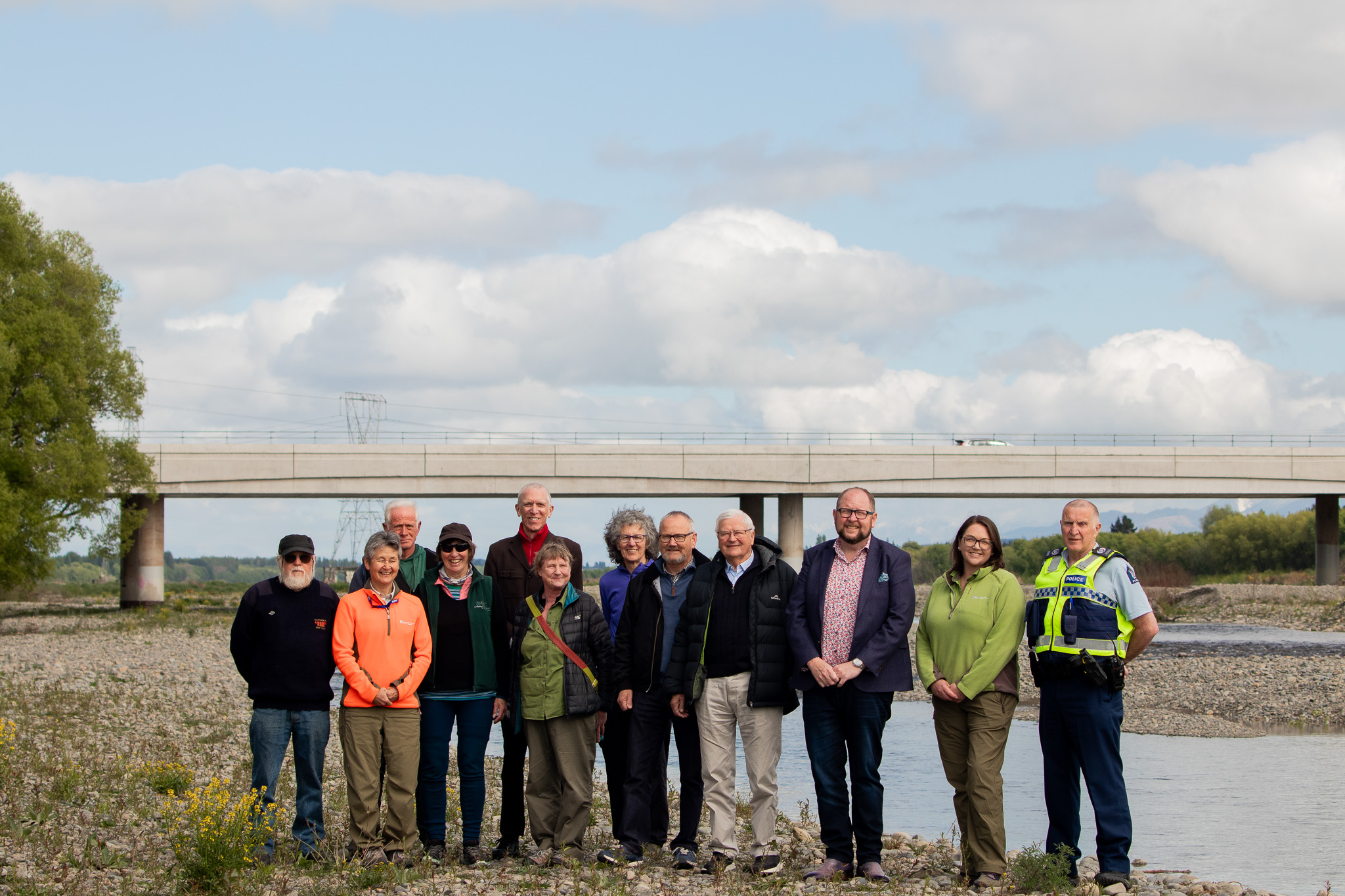4WD clubs, Police, the Department of Conservation (DOC), environmental groups, Councillors and Community Board members all came together at the Ashley Rakahuri River last week to show their commitment to the river remaining accessible for all.
The meeting was organised by Waimakariri District Council Mayor Dan Gordon, with support from DOC and the Ashley Rakahuri Rivercare Group, and were joined by Environment Canterbury and others.
This was the result of a recent deputation from DOC asking to close the upper part of the Ashley River to vehicles to protect native birds during nesting season.
Mayor Gordon said, “It’s important that we bring people together on this topic.”
“What was clear from our meeting was that all groups want the best for the environment, and care about the Ashley Rakahuri River. Bringing people together is the first step in solving this issue.
“We stand side by side united, that as we come into the nesting season, we want to stop undesirable behaviours that put bird nesting areas at risk. It’s a beautiful area and there is room for everyone, if we all play our part.”
Rangiora Ashley Community Board Chair Jim Gerard welcomed the collaboration.
“Protecting the nesting birds is important, but it’s also important that we keep access to the river open for locals who cherish this area. Instead of limiting access, in the first instance the right move is to work together.”
Dr Te Maire Tau, upoko (head) of mana whenua Ngāi Tūāhuriri, emphasised the importance of all river users being respectful of the environment and avoiding damage to the waterways and the land.
“The Ashley is home to endangered birds, and they need to be looked after. Working together to ensure their protection, and that of the wider river environment, going forward is important to get right.”
Local DOC Operations Manager Leeann Ellis said braided rivers are a globally rare ecosystem, home to species that have adapted to live in this dynamic environment.
“We’re lucky to have such an important habitat on our doorstep and need to make sure the vulnerable threatened birds that breed here are not impacted by human behaviour like irresponsible 4WDing. These native species are also protected under the Wildlife Act – it’s illegal to harm or kill them, or to damage nests and eggs.
“We acknowledge the Ashley Rakahuri River is an important recreation area for some people and look forward to working with the community to come up with a solution that ensures these nesting birds are protected.”
Environment Canterbury Councillor Grant Edge welcomed the collaboration. “We know people use our river corridors for various pursuits, and the vast majority are careful and considerate of wildlife. We want those that use this area to value it, and education and information is a great start.”
Bruce Stuart from the Combined 4WD Clubs echoed these sentiments.
“4WD Clubs, collectively under the Combined 4WD Clubs umbrella, have enjoyed the Ashley River for many years. Our members are very aware of the birds now nesting/breeding in the Upper Ashley and are happy to work together to ensure their environment is protected, without restricting access to the river. We fully support efforts for increased education and better signage to increase public awareness of the need to protect these bird colonies.”
Ashley Rakahuri Rivercare Group spokesman Grant Davey welcomed the discussion about how to protect nesting birds.
“What’s important to us is that any activity on the river is done responsibly and with proper respect for the environment – especially the birds
“The upper part of the Ashley, below the gorge, has in the last few years been increasingly favored by braided river birds for nesting. The river here is quite narrow and there are very few places for birds to nest. It is completely inappropriate for 4wds or any other vehicle to be driven through them, but there are other important factors for the birds that also need addressed. The best way forward will involve discussion and collaboration.”
Canterbury Police Rural Area Commander Peter Cooper welcomed the collaborative approach.
“An approach that brings all the relevant parties together to work collectively on this issue is the right approach. It is always preferable to enforcement. We welcome this approach and look forward to future discussions.”
The groups will meet again in December to continue discussions.
